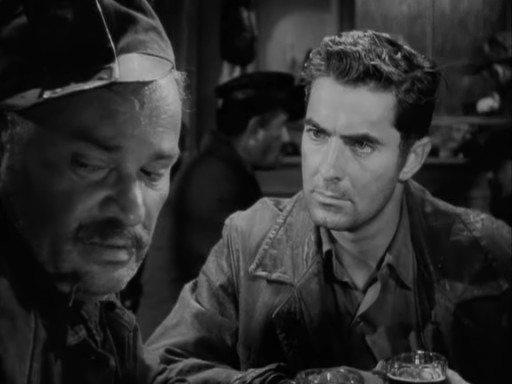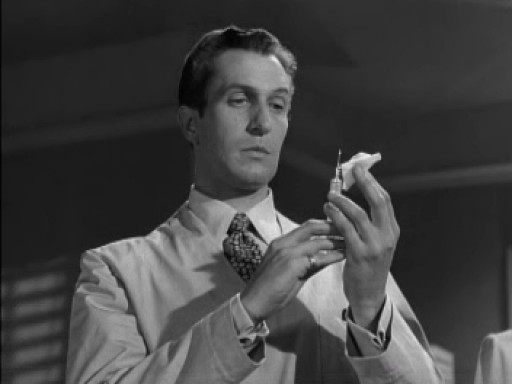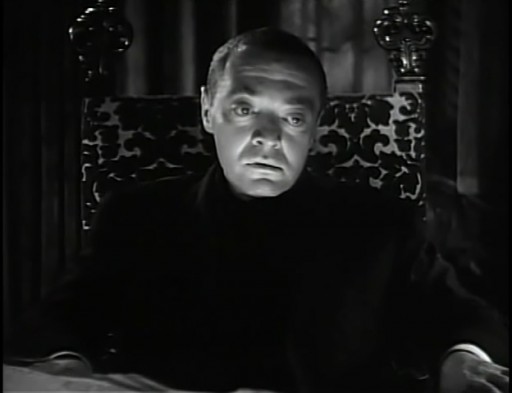
Notorious (1946, USA, Hitchcock) – Ingrid Bergman goes drunk driving with Cary Grant, which leads to all sorts of troubles with gangsters/anarchists/Nazis. This may be Grant’s first serious role where I’m actually able to take him seriously. Watched it all. Btw, why is it that these fascists-in-hiding always have such creepy, domineering mothers?
The Bandit of Sherwood Forest (1946, USA, Levin, Sherman) – Robin Hood is possibly the most awesome story premise in the history of storytelling, but this son-of-Robin version is quite stupid: Old Robin Hood gathers together his former comrades, (who all still live in the forest, wtf?), because the Lord Regent wants to overturn the Magna Carta and thus End Freedom and Democracy. Robin gets help from his son, who has been educated in all things Robin Hoody, up to and including the smirk. Watched: 8 minutes.

The Razor’s Edge (1946, USA, Goulding) – Somerset Maugham’s novel about a man who goes loafing around the world in search of enlightenment has stayed with me ever since I read it at an impressionable young age. I’ve done my searching in other ways, (the whole Indian guru thing was ahead of its time in 1944, but hasn’t aged well), but the story has always been a model for me. It works fairly well as a movie, more superficial, but some of the message comes through. Watched it all.
Valley of the Zombies (1946, USA, Ford) – A man jumps off a ledge with his cape flapping around him. I guess the movie’s trying to tell us he’s a vampire. Watched: 7 minutes.








